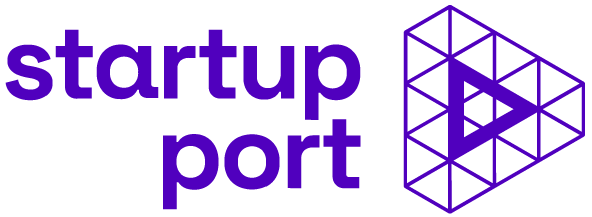The Migrant Founders Monitor of the Startup Association and the Friedrich Naumann Foundation for Freedom examines the connection between migration and innovation in the German startup ecosystem. A third of the first-generation migrant founders came to Germany to study – which confirms the international appeal of the German university and research landscape. Talented employees and ambitious founders with a migration background alleviate the pressure of the shortage of skilled workers and provide valuable impetus for innovation and growth. The report shows the challenges that migrant founders face and their role in the internationalization of the German economy.
Internationality and immigration play an important role in the startup ecosystem. A talented workforce can help companies address skills shortages, while ambitious founders provide valuable impetus for innovation and growth. Migrant founders are particularly ambitious and help to make the German economy more international.
Migrant founders strengthen Germany
With a share of 21 percent, founders with a migration background make up a significant part of the German startup ecosystem – moreover, six out of ten German startups valued at billions have at least one migrant founder in the founding team. It shows that they are active in all sectors and federal states, with the distribution being strongly influenced by the internationality and population structure of the respective locations. Six out of ten migrant founders are first-generation founders – they were born abroad and have their own migration experience. In this group in particular, strengths, potential and existing obstacles are particularly evident.
Universities and the labor market attract international start-up talent
A third of the first-generation migrant founders came to Germany to study – which confirms the international appeal of the German university and research landscape. The strength of the job market is also visible: 22 percent of the founders came to the country for a job. With a view to the attractiveness as a start-up location, the low proportion of respondents at 8 percent who came to Germany to set up a business points to opportunities for targeted improvement.
Break down barriers in bureaucracy and banks
42 percent of first-generation migrant founders see themselves at a disadvantage when dealing with authorities and offices. Complex processes and a lack of digitization are criticized, especially in an international comparison. This leads to higher costs and time for founders because additional services such as translations are due. Contact with banks is also found to be difficult by a third – similar challenges come into play here.
Using the potential of migrant founders
Three quarters of the first generation of founders are so-called high potentials – they have an academic degree and are pursuing ambitious growth plans for their company. Especially with a view to venture capital as a central growth resource, the ambitions of the first generation of high potentials are clearly visible: 73 percent are aiming for VC financing, for start-ups as a whole this figure is 44 percent. This underlines that barriers for migrant founders must be removed in order to further increase the attractiveness of Germany as a business location.
Migrant founders think internationally
Above all, the founders of the first generation are also characterized by a significantly more international orientation of their company: At 33 percent, they already generate a larger proportion of their sales abroad than startups overall (20 percent). In addition, on average half of their employees come from abroad (28 percent for startups overall) and 23 percent of employees have their primary place of work outside of Germany (11 percent for startups overall). Here it becomes clear that these founders are focusing more on international markets and are also more broadly positioned when it comes to talent.
Karl-Heinz Paqué, Chairman of the Board of the Friedrich Naumann Foundation for Freedom:
“One central message emerges from this year’s Migrant Founders Monitor: Immigration also plays an important role in the areas of innovation, start-ups and thus economic development. We have to use the expertise and ambitions of migrant founders for Germany as a business location and tackle the bureaucracy and language barriers identified by the founders.”
Magdalena Oehl, Deputy Board Member Startup Association:
“The start-up ecosystem is very international – also here in Germany. At the same time, there is still a lot of untapped potential. If we become more international and more attractive to founders from all over the world, our country will benefit. This gives us the task of working with politicians to break down barriers in the area of immigration, streamline bureaucratic processes and also make all relevant information available in English. With a view to demographic change, we have no time to lose here.”
The Migrant Founders Monitor 2023 can be downloaded here
About the Migrant Founders Monitor
The Migrant Founders Monitor focuses on founders with a migration background and identifies their strengths and challenges in the German startup ecosystem. The report thus relates the topics of migration, innovation, growth and social openness to one another and in this way provides new impetus for current debates on immigration, the shortage of skilled workers, diversity and participation. The central database is the German Startup Monitor (DSM) – with 1976 participants, the most comprehensive survey in the field. The migration background was recorded in the DSM according to the definition of the Federal Statistical Office. In total, data from 380 founders with a migration background could be taken into account.
About the Startup Association
The startup association is the representative and voice of startups in Germany and represents their interests, points of view and concerns in relation to legislation, administration and the public. He promotes innovative entrepreneurship and brings the startup mentality into society. The association sees itself as a network of startups in Germany. You can find more information about the startup association on our website.
About the Friedrich Naumann Foundation for Freedom
In more than 60 countries, the Friedrich Naumann Foundation for Freedom works for human rights and democracy by supporting political dialogue and policy advice. The foundation offers liberal political education programmes.

